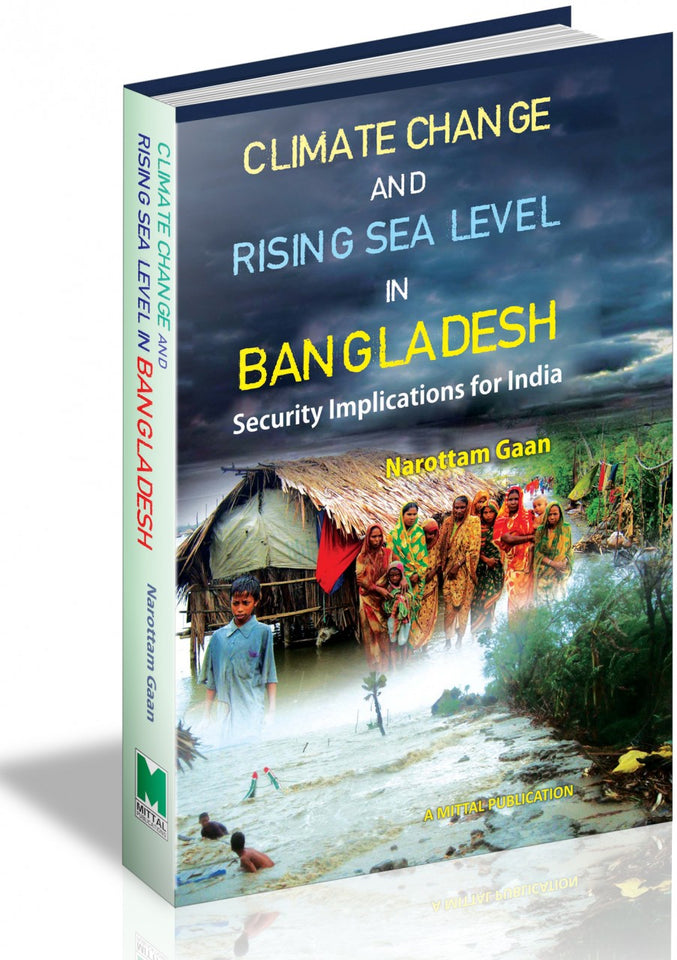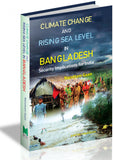Climate Change and Rising Sea Level in Bangladesh
Regular price
Rs. 1,200.00
What has come in for the most daunting challenge to the ingrained conventional pronouncement of security in Westphalia parlance built around state and its corresponding apparatus is none else than the very inordinate and relentless human interference into the functioning of nature in pursuit of development, requirements of modernity and civilized and exorbitant life style culminating in climate change along with its apocalyptic consequences wrought on human beings and non-human living things. This non-traditional security challenge is no where seen more glaringly than in the conext of Bangladesh being hazardously vulnerable to the havoc of natural calamities like sea level rise, global warming, cyclones and hurricanes etc. Threatened by the ever engulfing rising sea level and other disasters, the people in low lying regions of Bangladesh are on their heels to areas within the country or to the neighbouring countries like India for their living and sustenance. The continued influx of Bangladeshis as environmental refugees into Indian territories like Assam in conflation with the original inhabitants of a different ethnic origin has in recent years not only ignited the scourge of violence and killing of human beings and but also paved the way for the emergence of local uprisings like ULFA and Bodoland movements ultimately dragging both India and Bangladesh into the conflagration. This book delves deep into the entire gamut of the crisis and unveils the linkage between climate change and ongoing migration from Bangladesh focusing on the desideratum of addressing the root causes of environmental crisis not only at the local or regional but also at the global level in order to unearth a possible solution.
Narottam Gaan, both Ph. D and D. Litt., Professor and former Head of Post-Graduate Department of Political Science, Utkal University, Vani Vihar, Bhubaneswar has been teaching Political Science and International Studies with unflinching commitment and dedication. Not being lured by the lucre of Allied Services (ICS) in 1983-84, he preferred to stay in the academic life. Publication of innumerable articles and research papers in various journals in India and abroad, and thirteen books come as a testament to his prominent scholarship and deep acquaintance with a plethora of wide ranging subjects and contemporary issues concerning policy makers, statesmen, scholars, social scientists and humanity at large. Privileged to visit Austria, Hungary, Slovakia and Croatia on an Austrian government fellowship, he attended many conferences and programmes abroad and received advanced degree in international studies from European University Center for Peace Studies, Stadtschlaining, Austria. Critically delving deep into the Western concepts and challenging these as ‘given’ to analyze, understand and interpret issues with incisive contestation of their contemporary relevance from an Indian perspective has been one of his illuminating intellectual cornerstones. His present focus on climate change, environmental security, development, peace, human security and economic rethinking and various national and international issues of current importance challenging the conventionally ingrained notions of state, sovereignty and national and international security, entitles him to be one of the few celebrated scholars receiving wide acknowledgement and accolades from abroad.
Guaranteed Safe Checkout





